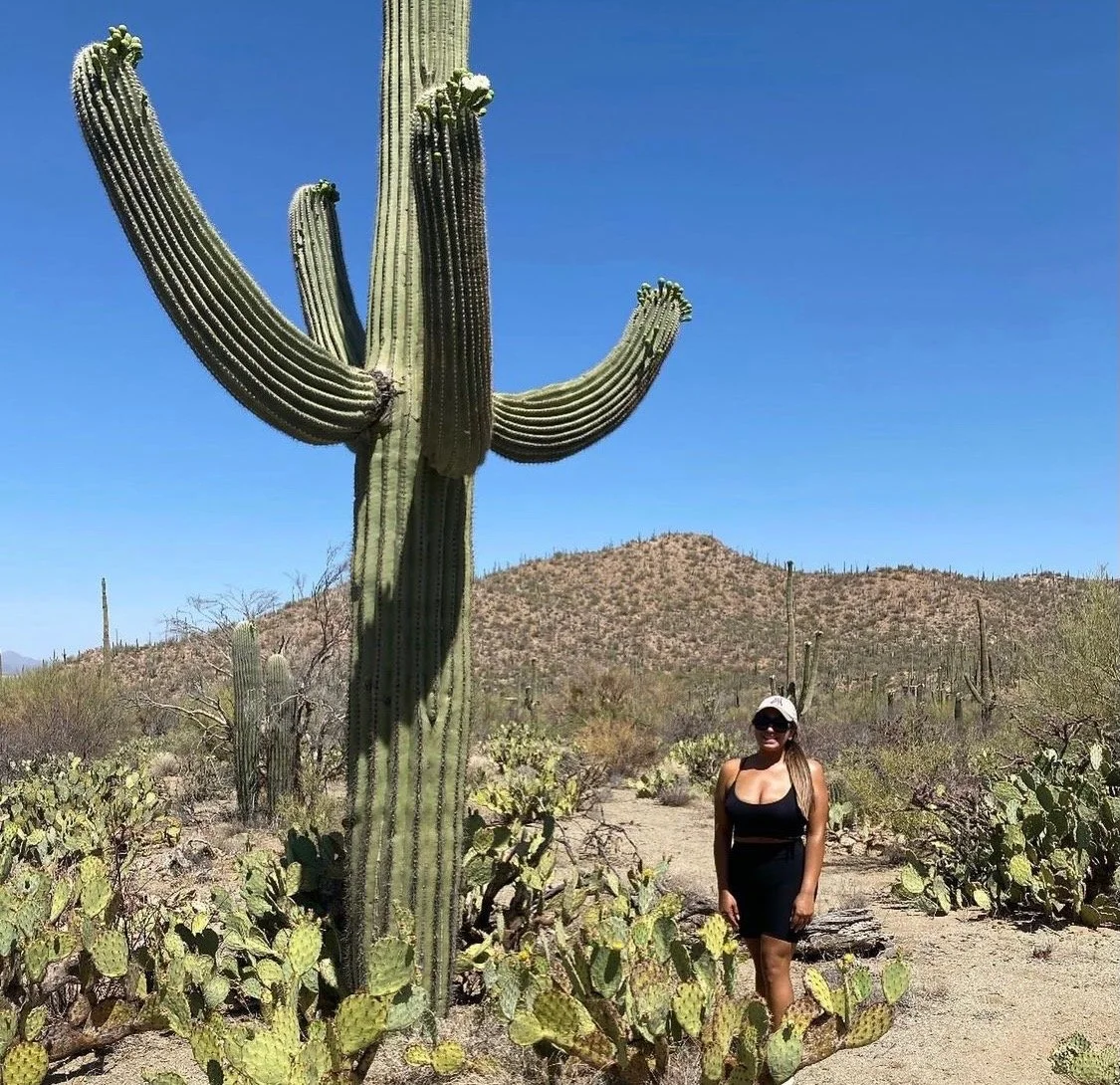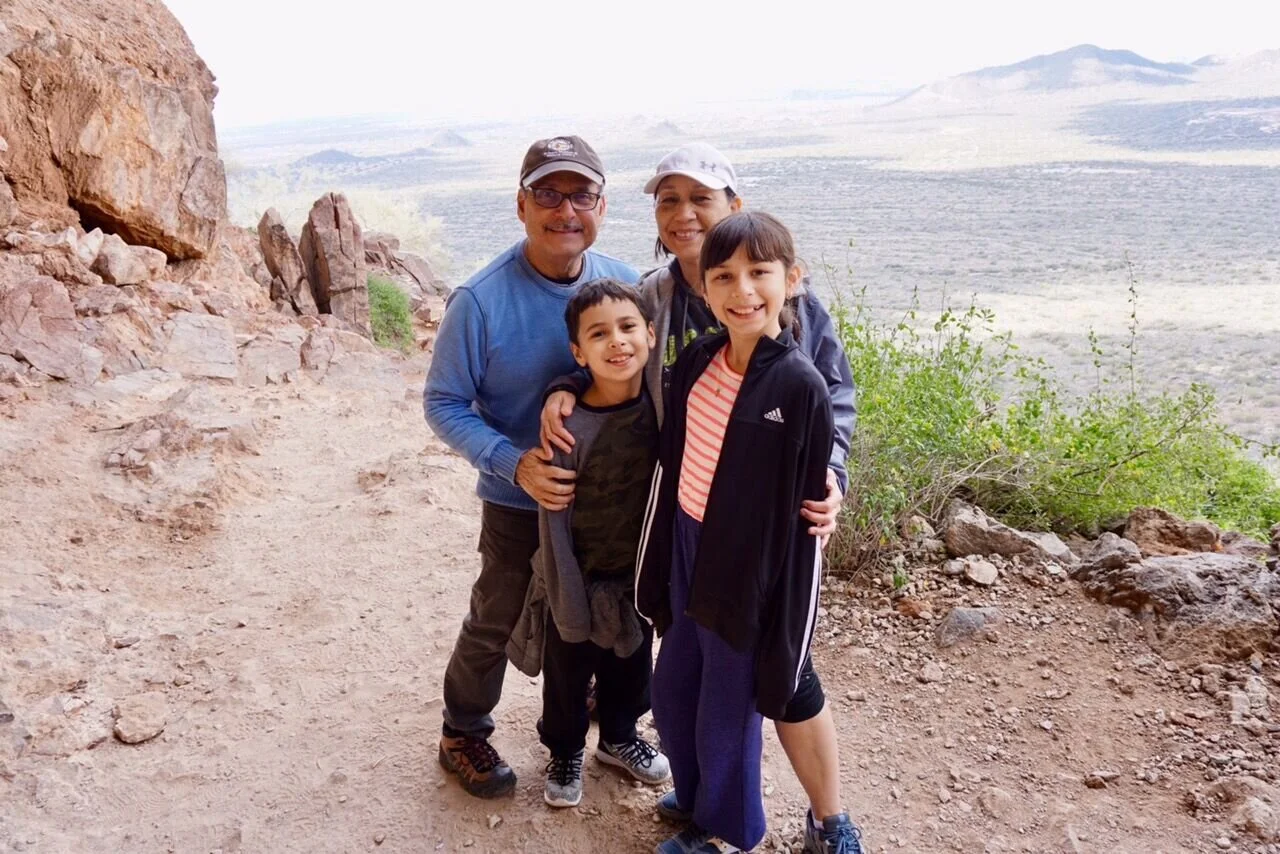Mesa City Councilmember Francisco Heredia represents District 3.
Mesa is the third largest city in Arizona with a diverse population of over 518,000 people. As this number increases, it is urgent that we prioritize solutions to curb the impacts of the climate crisis so that we can build the safety and resilience our communities deserve.
The City of Mesa is taking action to make sustainable improvements for our residents, and have released a Climate Action Plan to protect and conserve Mesa’s environment and natural resources.. To bolster this effort, we need to make investments that tackle the climate crisis, and have tangible benefits for Arizonans. Fortunately, Congress is working on a bill, the Build Back Better Act, that would make a difference for our city and state that will mitigate wildfires and protect forests and watersheds, address drought impacts and land and water issues, and act boldly on the climate crisis, and we need Senator Kelly and Senator Sinema to support it.
Read MoreBy: Coconino County Supervisor, District 2, Jeronimo Vasquez
For as long as I can remember, the outdoors has been an interwoven element of my life. For my family, it was something that we were always mindful of and it informed so many of the values that I continue to carry in my life today. I also come from a family of educators and they instilled in me the importance of education, community, and youth programming. Looking back now, my career aligns with so much of the teachings they shared with me.
Read MoreBy Arizona State Representative Alma Hernandez
I was born and raised on the South Side of Tucson. My father grew up on a farm in Van Nuys, California and my mother emigrated from Nogales, Mexico. I’m the youngest of three, and proud to carry the strength and resiliency of my ancestry and my community. The district that I’m from and also represent is predominantly Hispanic and low-income. Our community is beautiful, with vendor-lined streets and a strong sentiment of care.
Read MoreOn Thursday, community members across the nation joined HECHO, Luis Reyes, CEO of Kit Carson Electrical Cooperative, and Christopher Miller, President of Guzman Energy to hear the story of how Kit Carson Electric has transitioned to 100% daytime solar energy.
Electric cooperatives have the potential to be a major force in the clean economy as they can provide a path for rural communities to thrive as they transition away from fossil fuels, and provide affordable energy to families. Additionally, one recent study found that “electric cooperatives supported nearly 612,000 American jobs and contributed $440 billion in U.S. gross domestic product from 2013 to 2017.”
Read MoreLand based traditions have been a part of my life since before my inception. On my mother’s side we have deep roots in agriculture in Northern Mexico. On my father’s side we have generations of farmers and ranchers in central Mexico as well as a few generations of loggers in Arizona. In my family story, the land is what brought us together. As the owner of Suarez Forestry LLC, it keeps us working together.
Read MoreGrowing up in Douglas, Arizona is like having a foot in two worlds. Because it straddles the United States and Mexican border, my upbringing was unique in that I grew up on what I considered an international avenue – my favorite tienditas on one side, my family on the other, and then the desert, the saguaros, watching us all.
Living in a border town means understanding economic privilege from an early age. I recognized the divide that existed, and the role that politics played in our lives. I was painfully aware of the privileges that being a U.S. Citizen awarded me, and I questioned why my neighbors weren't able to experience what my family could.
Read MoreFor generations, Hispanics have enjoyed a unique relationship with nature that connects us to our ancestors and fortifies the bond that we have with our community. Being able to practice these cultural traditions that depend on open spaces, is more critical than ever, and policy that includes Hispanic and Latinx values is especially urgent. For all of these reasons, Hispanic and Latinx leadership is invaluable in conservation legislation that is implemented and passed.
Read MoreIntersection of Clean Energy and the Climate Crisis Focus of Panel With Commissioner Stephanie Garcia Richard, Representative Abbas Akhil, Pattern Energy VP, and RETA Ex. Director
SANTA FE, NM – Hispanics Enjoying Camping, Hunting, and the Outdoors (HECHO), in partnership with the New Mexico State Land Office (NMSLO), and Commissioner of Public Lands Stephanie Garcia Richard, hosted a virtual event focusing on cl
Read MoreMy siblings and I spent our summers on the East side of New Mexico on my grandfather’s ranch. Our family called it La Garita. Those trips and my upbringing in southwest New Mexico gave me my first introduction to horses, and the beginning of a deep appreciation for the Gila National Forest that was almost in our backyard.
My mother was the eldest of 15 siblings, and she would often share with us what it was like growing up on the ranch, doing chores and pausing to take a break while my grandfather would break a watermelon on his knee for them all to share together. My family has always had a strong tie to the land, because as ranchers, nature is your livelihood…..
Read MoreHECHO spoke with Representative Raquel Terán of Arizona to learn about her personal connection to the Grand Canyon, her favorite memories there, and why she believes the Grand Canyon should be protected from uranium mining.
HECHO: What is your personal connection to the Grand Canyon?
Representative Raquel Terán (RT): I had never been to the Grand Canyon growing up. I finally went to visit in my early thirties. It was so easy to just get in the car and go visit the Canyon. It was amazing, and the colors were striking. It was so peaceful, and I remember thinking to myself, how is it possible that we had never driven here before? This wonder is in our backyard and it was just so gorgeous. The Grand Canyon holds the colours of Arizona….
Read MoreHECHO spoke with Mesa City Councilmember David Luna to learn about his personal connection to the Grand Canyon, his favorite memories there, and why he believes the Grand Canyon should be protected from uranium mining.
HECHO: What is your personal connection to the Grand Canyon?
David Luna (DL): My personal connection to the Grand Canyon begins with the fact that I'm a native of Arizona, which gives me that personal connection to one of the seven wonders of the world. I’ve had the opportunity to take visitors, relatives, and my grandkids to the Grand Canyon so they could see its majesty, its wonder, its uniqueness, the way one should experience it – in person. The Grand Canyon is something that we truly celebrate here in Arizona.
Read MoreMy family has a long history in the Pojoaque Valley of New Mexico. Both my mother and father’s side of the family has been a part of this county for generations, dating back to the early pre-Hispanic settlers in the area. Growing up in New Mexico, I was immersed in the traditional farming community and grew up with the ranchero lifestyle.
Read MoreAs a native Arizonan raised in Douglas, I have always admired the desert. While many might think of a desert landscape as arid, and perhaps even uninhabitable, I find the desert to be one of the most life-sustaining biomes, teeming with species who have adapted and thrive in our dry climate.
Read MoreThe favorite activity that my father and I shared was fishing. Fishing taught us patience and respect, not easy lessons for my rambunctious siblings and myself. When we would catch something too small to eat we would always throw it back. I’ll never forget the first fish my baby brother finally caught. It was a tiny Bluegill no bigger than the length of my index finger and certainly nothing that was going to feed anyone. Beaming with pride from this seminal experience he threw it in the freezer instead of throwing it back into the lake. My dad lit into my wide-eyed little brother. With the frankness signature of a Marine-Corps drill sergeant he informed us that we don’t waste. If we kill we eat and when we eat, we use as much of the animal as possible.
That lesson struck a nerve with me much deeper than just my love of fishing or nature. Spending time with my father in the outdoors was a masterclass in respect. I’ve carried that respect with me from the lush forests of Northern Michigan to my arid home in Southern Colorado. I’ve tried to embody it everyday as an adult, as a mom, as a teacher and now as a State Legislator.
Read More
















